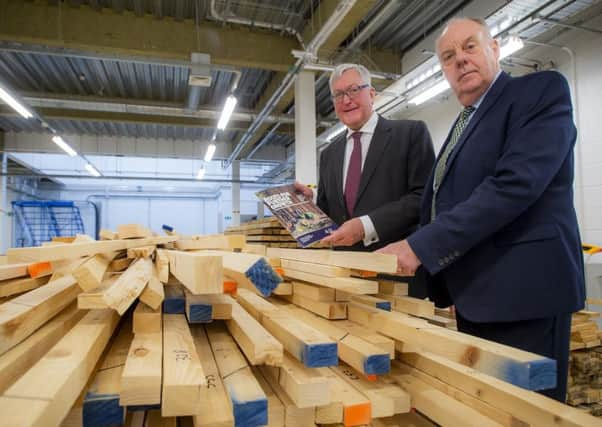Forestry could add £2bn a year to Scots economy by 2030


The Roots for Further Growth strategy, launched by the Scottish Forest and Timber Technologies Industry Leadership Group (ILG), outlines a long-term vision to drive economic growth in the forestry sector by maximising output and boosting efficiency.
It claimed the industry could be worth an annual £2bn to Scotland’s economy by 2030 if it capitalises on an action plan involving partnerships with Scottish Enterprise, Highlands and Islands Enterprise, Forestry Commission Scotland and Skills Development Scotland.
Advertisement
Hide AdAdvertisement
Hide AdThe report highlighted five strategic priorities: maximising economic outputs of Scotland’s forest and fibre resources; improving efficiency in the supply chain; expanding markets; developing a workforce with skills for the future; and communicating the forest and wood-based industries’ economic value.
It also stressed the sector’s potential role in a low carbon future, outlining an aim to store an additional one million tonnes of carbon dioxide through woodland creation and to replace fossil fuel-derived products.
The forest and timber sector currently contributes £1bn per year to the Scottish economy and supports around 25,000 full-time equivalent jobs.
Chair of the ILG Martin Gale, who is also chair of BSW Timber Group, presented the strategy to rural economy secretary Fergus Ewing during a visit to the Institute of Sustainable Construction at Edinburgh Napier University.
Gale said: “I am delighted to launch the Roots for Further Growth strategy. Over the last decade the forest and timber technologies sector has grown significantly and our ambition is to double our contribution to the Scottish economy by 2030.
“The potential of a sustainable natural material like wood fibre is an exciting one in a low carbon future world, offering opportunities to sequester and store carbon, substitute high embodied energy products and even provide a feedstock to replace fossil fuel-derived products.
“All these outputs, and more, can provide significant economic and environmental benefits for the people of Scotland to 2030 and beyond.”
Ewing called the strategy “ambitious and forward thinking”. He added: “The outputs of these forest industries are very important to Scotland, contributing significantly to our economic sustainable and inclusive growth and delivery of our climate change plans.
“The strategy and its associated actions are a welcome addition to our endeavour to grow and make the most of our precious forests.”